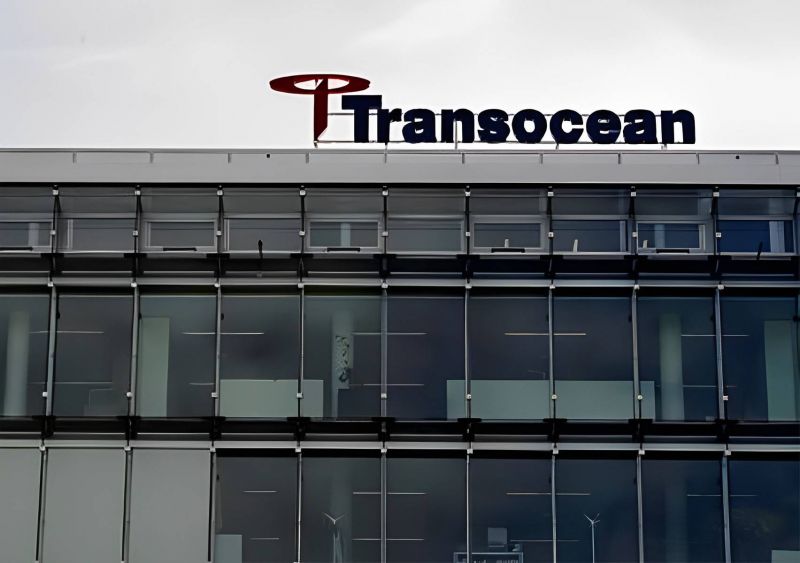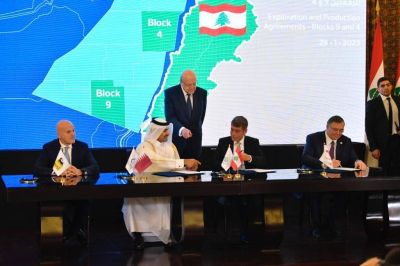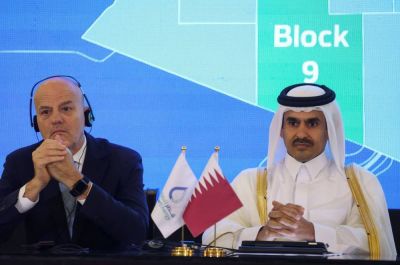
The TransOcean Barents drillship will be sent to Lebanon as part of the contract signed in May between TotalEnergies and Swiss offshore oil exploration company Transocean. (Credit: AFP/Scanpix)
The TransOcean Barents, a drilling vessel chartered by the TotalEnergies/Eni/QatarEnergy consortium, will arrive in Lebanon in August to carry out the first exploration mission aimed at confirming the potential of supposed hydrocarbon reserves in Block 9 of the Lebanese Exclusive Economic Zone (EEZ).
This was the main message to emerge on Monday from a meeting between outgoing Prime Minister Najib Mikati and TotalEnergies EP Liban Managing Director Romain de la Martinière at the Grand Serail in Beirut. According to the press release published by the state-run National News Agency, the two officials also discussed "preparations" for the operation, albeit without going into further detail.
According to its specifications, the TransOceanBarents can drill to depths of more than 9,000 meters. TotalEnergies' communications department did not respond to requests by L'Orient-Le Jour for more details. The Lebanese Petroleum Administration (LPA), an institution attached to the Energy Ministry, also declined to give further information.
The shipment of the TransOcean Barents is part of the contract signed in May between TotalEnergies and the Swiss offshore oil exploration company Transocean to explore Block 9 of the EEZ. The environmental impact study has already been completed, and the results are available online. The designated well has been named "Qana 31/1," in reference to the Qana offshore gas field split between Lebanon and Israel. Results from the TransOcean Barents well are expected by the end of 2023.
Located off the coast of southern Lebanon, Block 9 is one of a series of potential gas fields that also includes Block 4 off Batroun, for which Lebanon awarded the first-ever exploitation licenses in 2018 to a consortium comprising France's TotalEnergies, Italy's Eni and Russia's Novatek.
The exploration process for Block 4 was launched in 2020, and the results of the first drilling well detected the presence of gas, but not in sufficient quantities to justify a production start-up.
Exploration of Block 9 was delayed by the dispute between Lebanon and Israel over the delimitation of their maritime border, which was later resolved with the agreement signed between the two countries last October.
In the meantime, the consortium has changed face with the departure of Novatek last September — an indirect consequence of the war in Ukraine — and the arrival of QatarEnergy in January. Lebanon has yet to find a candidate to explore the eight other blocks in its EEZ, all of which have been up for bid since 2019. The deadline for applications from interested companies is June 30. Israel, for its part, has already begun exploiting gas reserves on the side of the border it controls.

